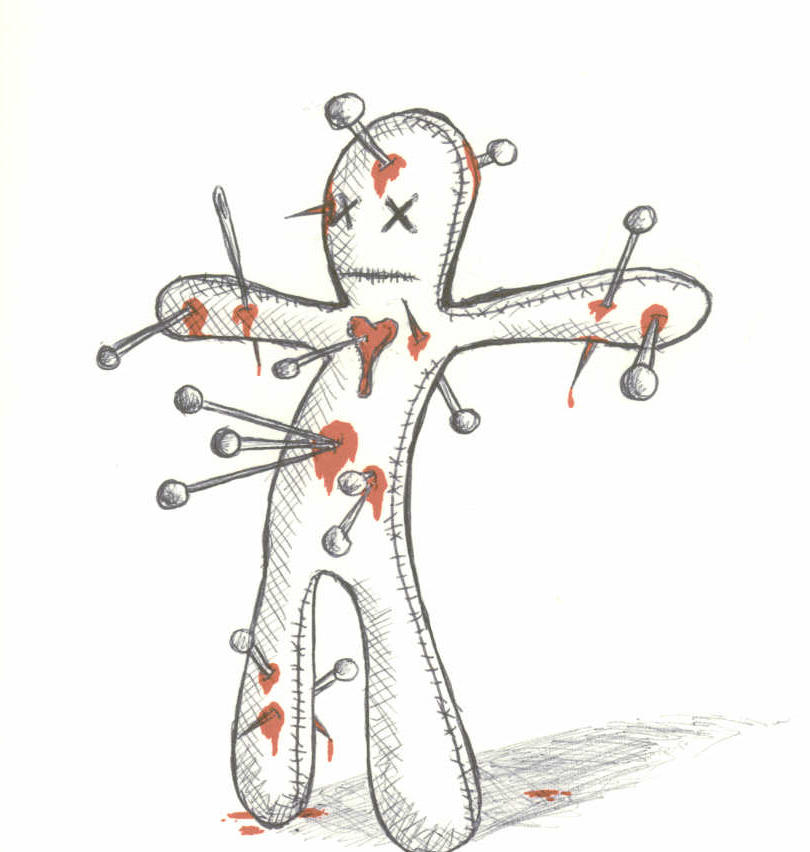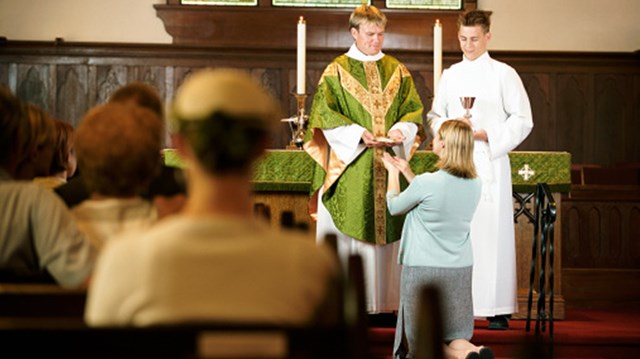Sermon for Holy Cross Day, preached on Sunday, September 14, 2014.
Like other women of her age, my mom picked out a pattern of fine china when she married my father. It is very thin and fragile. While growing up we were cautioned about horsing around in the dining room – you know, the museum room of many homes where you look at the fine china you never eat on. At some point in time, my mom decided her fine china was too precious NOT to use. I could not tell you when but it began showing up on the table and the dining room was used.
As Christians we are gravely tempted to think of the faith and the Gospel as a treasure like precious china – too precious to be used and so they end up being guarded or admired. Indeed the origin of Holy Cross Day was when Constantine's mother thought she had found part of Jesus’ cross and it became a relic to be admired and preserved. But we are not protectors of the faith or the cross. God does not need us to protect Him. God called us to proclaim the cross and to boldly speak His gospel before the world.
Ours is not the charge to guard the faith as if it were some inaccessible treasure but to use it, to raise up the cross before the world, to proclaim the message of the cross for the saving of many, and to live out this faith by taking up our cross and carrying it out in the high and holy calling of daily life. We are not curators of some museum or the security guards of some treasure. No, the cross is too precious to be hidden away. It is given to us to believe, to live, and to proclaim.
Once the cross lifted Christ. Were it not for the cross, Jesus would be indistinguishable from the hoards of rabbis and teachers who said this is I think the Scripture means. But the whole focus of Jesus' ministry was the cross. The hour had come – Jesus did not run from, attempt to escape from, or deny the cross. It is for this reason He was born. So in the Gospel for today we saw Him embrace the cross and His saving destiny as Redeemer of you, me and the world.
The cross is not where we admire Jesus but where we meet the judgment of God. The judgment of God on the world is not what we expect – not condemnation but mercy. The cross is what reveals this. In the face of God's Son in suffering and in His outstretched arms on the cross is written mercy, forgiveness, and hope. This cross is then the very means through which the Lord draws all people unto Himself. It is through the cross He reveals Himself as the Savior who has come for sinners, the sacrificial victim who pays for their sin, and the One whose death gives birth to life.
The cross lifted Christ for the world to see the judgment of God in mercy upon the sinner. Now the Church lifts the cross before the world so that Christ may continue to draw sinners to Himself and make know the glory of His mercy. This is our hour. We cannot shrink from the call to raise up the cross and boldly speak this Gospel. This is our hour, not to hide away the cross as a relic but to confront the world with the preaching of Christ crucified where forgiveness, life and salvation are to be found.
The world has already been judged in Christ, the sins of all the world have been paid in full by the blood of Christ. But who will know God’s rescue or the verdict against sin born of Christ’s blood? The cross must be lifted up, carried in faith, for us who are being saved and for those who do not yet know and rejoice in what Christ has done. The only way the world will be rescued, the sinner redeemed, the dead find life, and despairing find hope is through the proclamation of the cross. There is no other way that any will be saved except through Jesus Christ and Him crucified.
Churches and Christians are known for many things by the world around us. Are we known as the people who speak Christ crucified and as the Church where the Gospel is proclaimed in all its truth and purity? We do not have the luxury of pursuing other agendas or talking about things other than sin and redemption. The Church is the means through which Christ will be proclaimed and His Gospel raised up. God has determined to work through the Church.
The world does not know what it wants or needs. The world would never come to know that it needs the cross, grace, and mercy except God tell them. So then it is by preaching God's Word, proclaiming the Law and the Gospel, that sinners are awakened to their hopeless condition and directed to the one place where hope is found. We are in possession of the greatest treasure on earth – one that does what it says and delivers what it promises – grace and mercy!
The world does not know what it needs or wants but every thing the world needs is found in Christ. This Jesus whom we proclaim is the Christ of the cross. This is not legend or myth or even pious hope. It is, as St. Paul insists, the power of God to salvation for all who believe.
We Christians sometimes think of the Gospel as fine china - for special occasions, too precious to be used, a treasure to be guarded. But God has given us this treasure precisely so that we may use it, lift the cross high, and speak the living voice of His Word in our daily vocations of husband to wife, wife to husband, parent to child, child to parent, neighbor, co-worker, and even to the stranger on the corner.
Holy Cross Day began when St. Helena, mother of Constantine, raised a pagan temple so that the Church of the Holy Sepulcher might be built. They thought they found Jesus' cross on and this was treated as a relic to be guarded. The true meaning of the Holy Cross is not found in a relic to be guarded. The true meaning of the Holy Cross lies in the Gospel proclaimed, the Sacraments administered, and people who by the Holy Spirit believe it’s promise. God has planted this cross in the water that cleans us and clothes us with Christ’s righteousness, in the living voice of absolution that reclaims us from temptation and sin, in the bread and wine that feeds the dying with the bread of life. We are those who know the glorious gift that the preaching of this cross has given. But there are many more who have not heard. So we believe for ourselves and proclaim and live this Gospel for the sake of those for whom Christ also died. In this way the cross is exalted just as God intended. May the cross be lifted high and may it be raised in word and action by us, the baptized who have been born anew by its power and gift. Amen.







 S
S 







.jpg)



